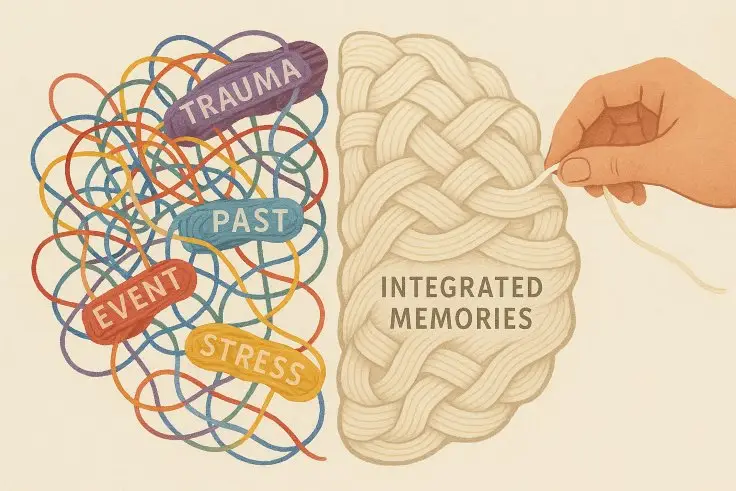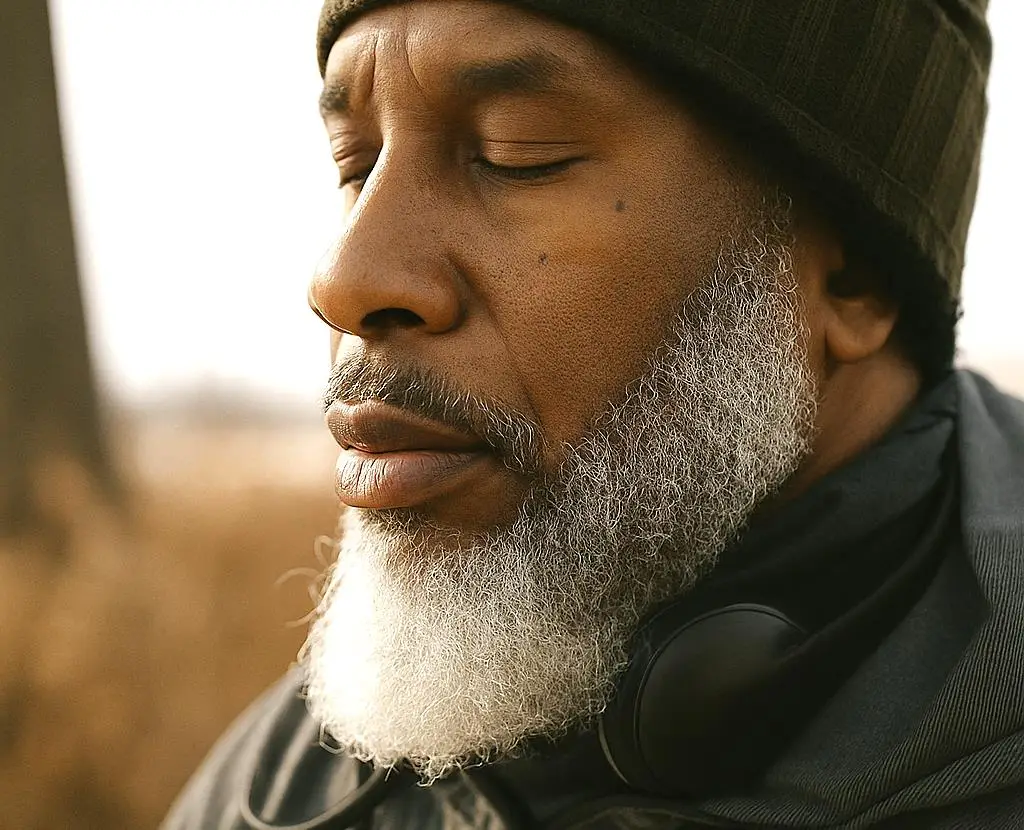Healing and Growth EMDR
No Referrals Needed
Anyone can make an appointment at any time, even if you haven’t been to your doctor first.
Flexible Appointments
Appointments are flexible and adaptable to your scheduling needs whether it’s in-person or virtually!
Online Booking
Clients have the flexibility to book online appointments in advance to suit their schedules and needs!
What Is EMDR Therapy?
EMDR (Eye Movement Desensitization and Reprocessing) is a specialized form of therapy designed to help people heal from trauma and distressing life experiences. This evidence-based approach helps your brain process traumatic memories in a way that reduces their emotional impact on your daily life.
Unlike traditional talk therapy, EMDR uses bilateral stimulation – such as guided eye movements, gentle hand tapping, or auditory tones – to help your brain naturally process and integrate difficult memories. This allows you to remember what happened without being overwhelmed by the intense emotions that were originally attached to those experiences.
EMDR is not about forgetting or erasing memories. Instead, it helps transform how these memories are stored in your brain, reducing their power to trigger flashbacks, anxiety, nightmares, and other trauma symptoms.
How EMDR Therapy Helps
-
Reduce Trauma Symptoms
Decrease the intensity of flashbacks, nightmares, panic attacks, and intrusive thoughts. Many people find significant relief from symptoms that have been affecting their daily life for years. -
Process Traumatic Memories Safely
Work through painful experiences in a controlled, supportive environment. EMDR helps your brain process memories that may feel "stuck" or overwhelming, allowing natural healing to occur.
-
Build Emotional Resilience
Develop stronger coping mechanisms and emotional regulation skills. As traumatic memories lose their overwhelming power, you'll find it easier to manage stress and navigate challenges. -
Heal Without Reliving
Unlike some therapies that require detailed retelling of traumatic events, EMDR allows you to process memories without having to describe everything that happened. You remain in control throughout the process.

EMDR
In our EMDR therapy sessions, we’re here to walk alongside you, guiding you through the journey of healing and personal growth. Whether you’ve faced the trauma of past events or carry the weight of life’s challenges, know that relief and recovery are within reach.
Together, we’ll delve deep into processing your experiences, understanding your emotions, and building resilience. With our support, you’ll experience the transformative power of EMDR, allowing you to reframe painful memories, reduce emotional distress, and enhance your well-being.
It’s not just about coping; it’s about reclaiming your life, and we’re here to help you every step of the way.
Transforming Negative Beliefs
with EMDR Therapy
One of the most profound benefits of EMDR therapy is its ability to transform negative beliefs and perceptions that have been ingrained due to traumatic experiences. These harmful beliefs can significantly impact a person’s self-esteem, relationships, and overall outlook on life. EMDR therapy’s ability to change deep-seated negative beliefs into positive, constructive ones is a crucial step in the healing journey. This transformation not only alleviates the symptoms of PTSD but also empowers individuals to live more meaningful and empowered lives.
Who Can Benefit?
EMDR therapy can be particularly helpful for people experiencing
- Childhood trauma or abuse
- Grief and loss
- Sexual assault or violence
- Accidents or medical trauma
- Combat or military trauma
- Emotional wounds from betrayal or abandonment
- Phobias and fears
- Post-traumatic stress disorder (PTSD)
- Anxiety and panic disorders
- Depression related to traumatic experiences
- Disturbing memories that won't fade
- Complex trauma from ongoing abuse or neglect
Transforming Lives
EMDR
Therapy for PTSD
Post-Traumatic Stress Disorder (PTSD) is a mental health condition triggered by experiencing or witnessing a traumatic event. It can lead to a range of symptoms, including flashbacks, nightmares, severe anxiety, and uncontrollable thoughts about the event. Living with PTSD can be incredibly challenging, impacting every aspect of a person’s life, from relationships to daily functioning.

EMDR Virtual Therapy
If you struggle with commuting, have a hectic work life, or simply have obligations that "get in the way" of accessing help, this is the option for you!
Virtual therapy sessions are held via Video for Healthcare.
EMDR
Ready to Begin Healing from Trauma?
Healing from trauma takes courage, and you’ve already shown that courage by considering EMDR therapy. You don’t have to carry the weight of difficult memories alone. EMDR offers a path toward freedom from the symptoms that have been holding you back.
Have questions about whether EMDR is right for you? Contact us for a free consultation to discuss your specific situation and learn how this specialized therapy can support your healing journey.
Frequently Asked Questions
1. How is EMDR different from regular therapy?
EMDR specifically targets how traumatic memories are stored in your brain, using bilateral stimulation to help process these memories. Unlike talk therapy, you don’t need to discuss every detail of what happened. The focus is on processing and healing rather than analyzing.
2. What does bilateral stimulation feel like?
Most people find the eye movements, tapping, or auditory tones to be gentle and manageable. Some describe it as similar to the natural eye movements that occur during REM sleep. We’ll practice these techniques before beginning any processing work.
3. How long does EMDR therapy take?
The length varies depending on your specific trauma history and goals. Some people see significant improvement in 6-12 sessions, while complex trauma may require longer-term work. We’ll regularly assess your progress and adjust our approach as needed.
4. Will EMDR make me forget what happened?
No, EMDR doesn’t erase memories. Instead, it helps reduce the emotional intensity associated with traumatic memories, so you can remember what happened without being overwhelmed by the feelings attached to those experiences.
5. What if I become too overwhelmed during a session?
Your safety and comfort are our top priorities. We teach you grounding techniques before beginning EMDR, and we can stop or slow down the process at any time. Sessions are designed to be challenging but manageable, and we’ll work within your window of tolerance.
